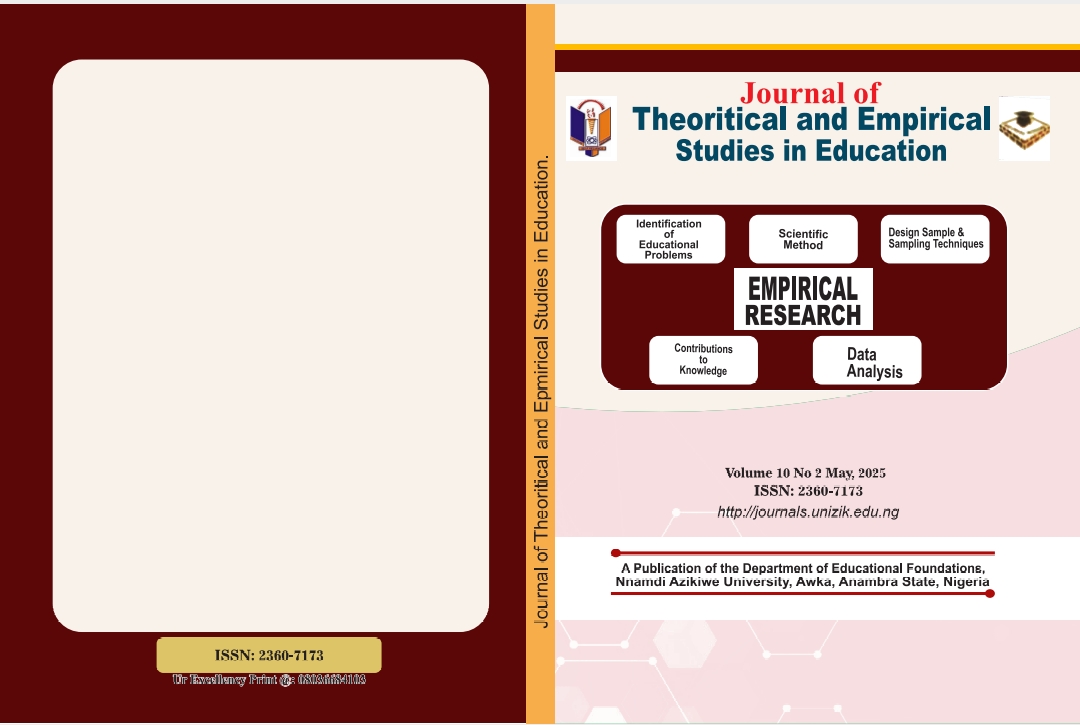STRATEGIC PLANNING, CONFLICT NEGOTIATION, SWOT ANALYSIS AND LECTURERS’ INSTRUCTIONAL EFFECTIVENESS IN PUBLIC UNIVERSITIES IN SOUTH-EAST NIGERIA
Keywords:
Strategic planning, Conflict negotiation, Swot analysis, Public universitiesAbstract
The study strategic planning, conflict negotiation, swot analysis and lecturers’
instructional effectiveness in public universities in Nigeria adopted an ex-post
facto design. The population of the study is 624 lecturers’ from six colleges or
faculties of education of the universities studied, with a sample size of 345
selected through proportionate stratified random sampling technique which
represents 60% of the population. Two research questions and two hypotheses
were formulated and the hypotheses were tested at 0.05 level of significance.
Strategic Planning, Conflict Negotiation, SWOT Analysis and lecturers’
Instructional Effectiveness Questionnaire” (SPCNSAEQ) was used for data
collection. The instrument was validated by two experts from educational
measurement and evaluation, and two from education management and planning.
Cronbach Alpha statistic was used to determine the reliability of the instrument
which yielded an index of 0.83. Mean rating and Z-test were used to answer the
research questions and test the hypotheses respectively. The study findings
indicated that the null hypothesis of no significant difference on influence of
negotiation on instructional effectiveness was retained rejecting the alternative
hypothesis. This is as a result of the z-cal. value of 0.2981 z-crit. value of 1.96.
It also revealed that the z-cal. value of -0.6232 z-crit. value of 1.96 such the
null hypothesis of no significant difference on lecturer response in federal and
state universities on influence of Strength, Weakness, Opportunity and Threat on
instructional effectiveness was accepted. Based on the findings, the following
recommendations were made amongst which are; the university authority should
ensure that SWOT analysis is applied to help them in discovering weaknesses,
strength, opportunity utilization and avoidance of threat in the school system.
Effective application or adoption of negotiation by university administration
remains a good strategic measure towards conflict management as well as
enhance effective delivery of instruction by lecturers.




